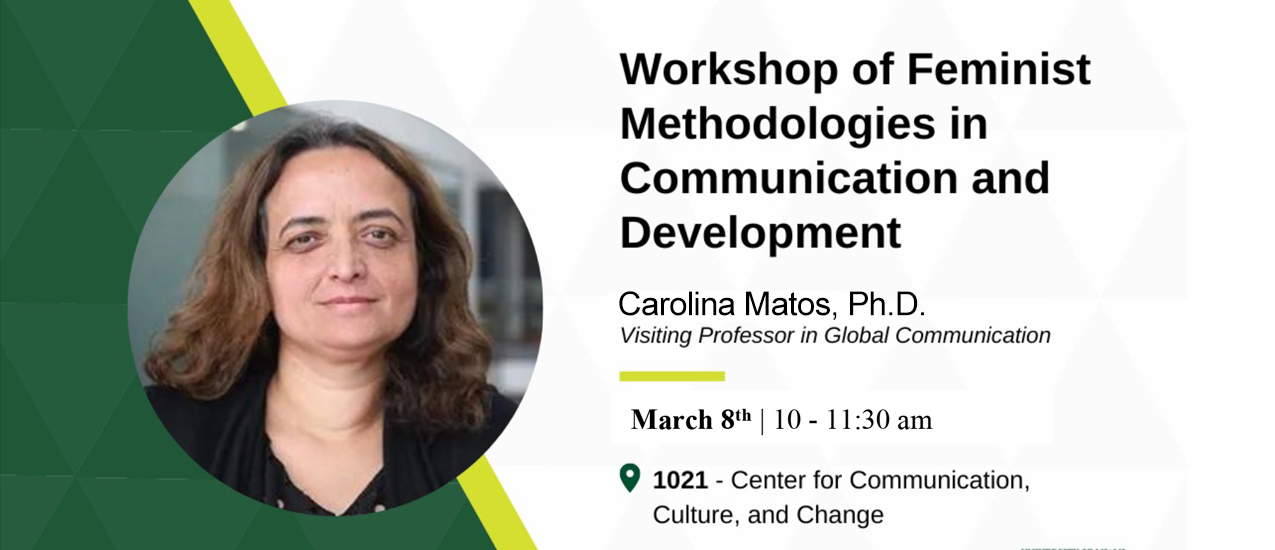In research that aims to address issues of social change and influence policy, can we conceive of a particular method that can further ’empower’ some of the communities that we engage with? In the current context where the use of mixed methods approach has become more popular, can we still talk about ‘feminist research methods,’ or a particular methodology praxis for engaging with research which aims to tackle issues of social injustice?
These are just some of the questions that the workshop lead by Carolina Matos, Ph.D., visiting associate professor in Global Communication and senior lecturer in Media and Sociology from City, University of London, engages with. Funded by the Global Challenges Research Fund (GCRF), the project, Gender, communications and reproductive health in international development, made use of a mixed methods approach to examine the use of communications strategically by 52 health and feminist NGOs from both the north and the south, from the U.S. to Europe, Latin America, and South Asia.
The workshop centers specifically on the focus groups findings with a group of women from low-income backgrounds in the state of Campinas, Sao Paulo Brazil, which was conducted in partnership with the NGO Reprolatina during the summer of 2021. Designed for graduate students, Ph.D.s, and early career researchers, this workshop will be followed by a hands-on activity on methodology application to one’s own research, as well as critical thinking on methodology and feminist perspectives on qualitative and quantitative research, use of interviews, ethnography, and focus groups.


